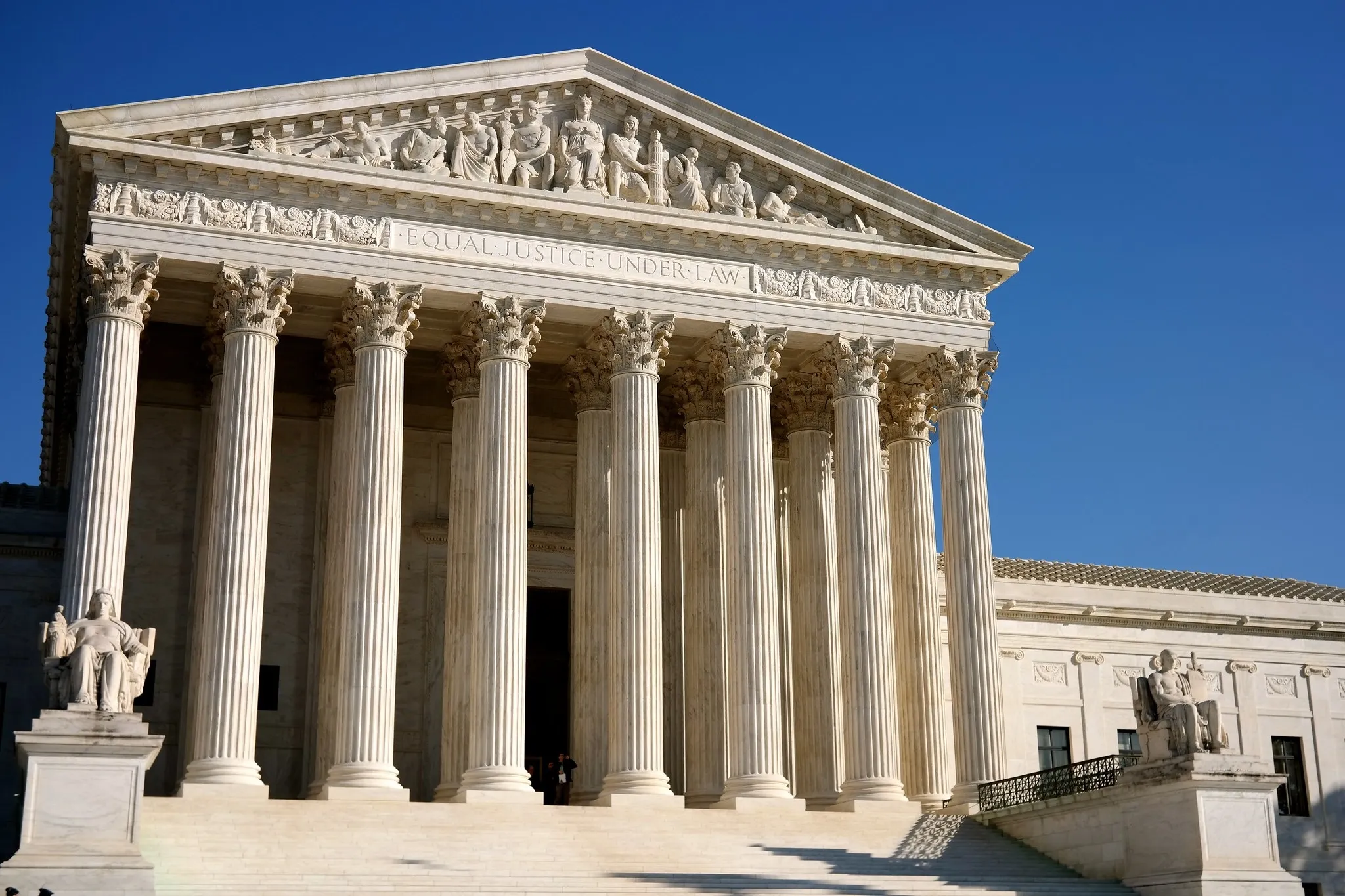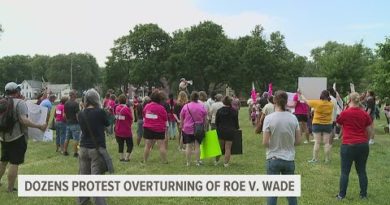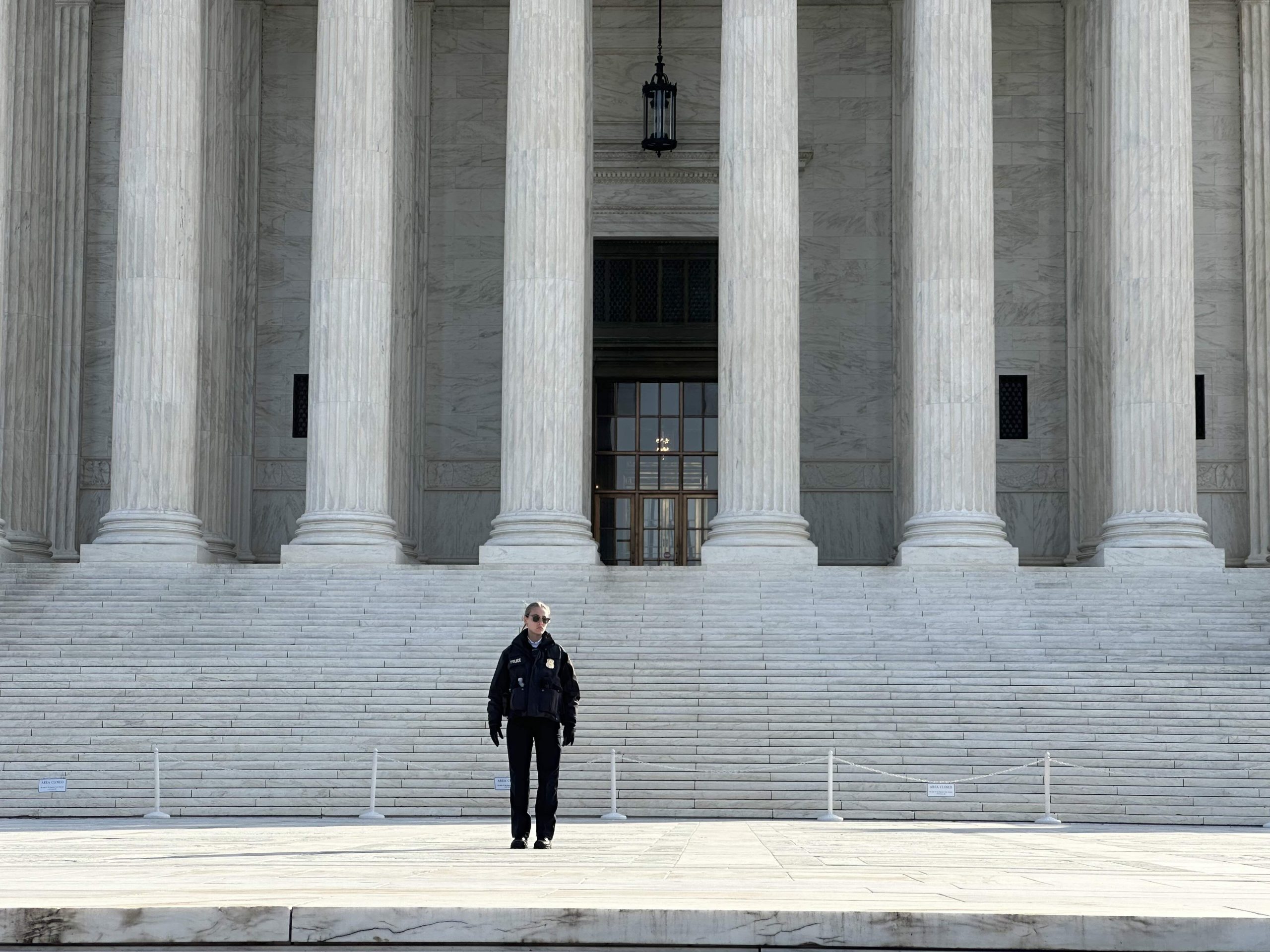Court rejects request to temporarily block Illinois assault-weapon bans
EMERGENCY DOCKET
on May 17, 2023
at 12:32 pm
The Supreme Court on Wednesday denied the request of a gun store owner and a gun rights group to block laws barring the sale of assault-style weapons in Illinois. (Davis Staedtler via Flickr)
The Supreme Court on Wednesday rejected a request to block state and local laws barring the sale of assault-style weapons in Illinois while a group of challenges to those laws continues in the lower courts. There were no dissents publicly recorded from the unsigned order, nor did the justices provide any explanation for their decision.
The order came in one of the first gun rights cases to reach the justices in the wake of last year’s decision in New York State Rifle and Pistol Association v. Bruen, in which a divided court made clear that the Second Amendment protects a broad right to carry a handgun outside the home for self-defense. And in future cases, Justice Clarence Thomas emphasized, courts should uphold gun restrictions only if there is a tradition of such regulation in United States history.
There are two separate laws at the center of Wednesday’s order. Shortly after a 2022 mass shooting at a July 4 parade in Highland Park, a suburb of Chicago, killed seven people and wounded 48 more, the city of Naperville – another Chicago suburb – adopted an ordinance that banned the sale of most assault rifles. In January 2023, the Illinois legislature passed a law that bars the sale and purchase of assault weapons and high-capacity magazines.
Robert Bevis, the owner of a gun store in Naperville, and a gun-rights group went to federal court in Illinois to challenge the laws, arguing that they violated the Second Amendment. In February, U.S. District Judge Virginia Kendall, a George W. Bush appointee, upheld the restrictions, explaining that assault-style rifles and high-capacity magazines are the kind of “particularly dangerous” weapons and accessories that the government has historically regulated.
After the U.S. Court of Appeals for the 7th Circuit turned down the challengers’ request to block the law while their appeal continued, the challengers came to the Supreme Court, asking the justices to step in. They described the case as an “exceedingly simple” one. There “cannot be the slightest question” that the Illinois and Naperville laws are unconstitutional, they wrote, because the rifles and magazines banned by the law “are possessed by millions of law-abiding citizens for lawful purposes, including self-defense in the home.” Neither Illinois nor Naperville has pointed to any historical tradition, they said, of an outright ban on an entire category of commonly used weapons.
The challengers pushed back against Kendall’s suggestion that the laws in this case pass constitutional muster because they are “particularly dangerous.” Weapons, the challengers contended, can be banned only if they are both dangerous and unusual – but, they say, assault-style rifles, as the second-most popular gun in the country, cannot be “unusual.”
Defending their laws, Naperville and Illinois emphasized that the challengers cannot meet the extremely high bar for the Supreme Court to intervene when the lower courts have declined to do so. In particular, the governments insisted, the challengers have not shown, as the Supreme Court requires, that they are clearly correct that the laws violate the Second Amendment. Nothing in the Second Amendment clearly protects the right to sell (as opposed to possess) guns, Naperville noted, and magazines are accessories, rather than “arms” or weapons for purposes of the Second Amendment.
The governments stressed that the challengers had not shown that assault-style weapons and high-capacity magazines are commonly used for self-defense. In fact, the governments observed, the features that make the banned weapons effective in combat are not useful for self-defense and can in fact be dangerous when used in the home. It is, they wrote, “‘widely accepted’ that handguns and shotguns, which remain legal to manufacture and sell in Illinois, are preferable for self-defense.”
Wednesday’s order came one week after the challengers filed their reply brief in the case. Although there is no way to know with any certainty, that passage of time suggests that there may have been debate and perhaps negotiations behind the scenes about the outcome, particularly given the lack of any recorded dissents or separate writings.
The case is scheduled for expedited argument in the 7th Circuit, along with other challenges to the state’s ban, in late June.
This article was originally published at Howe on the Court.






